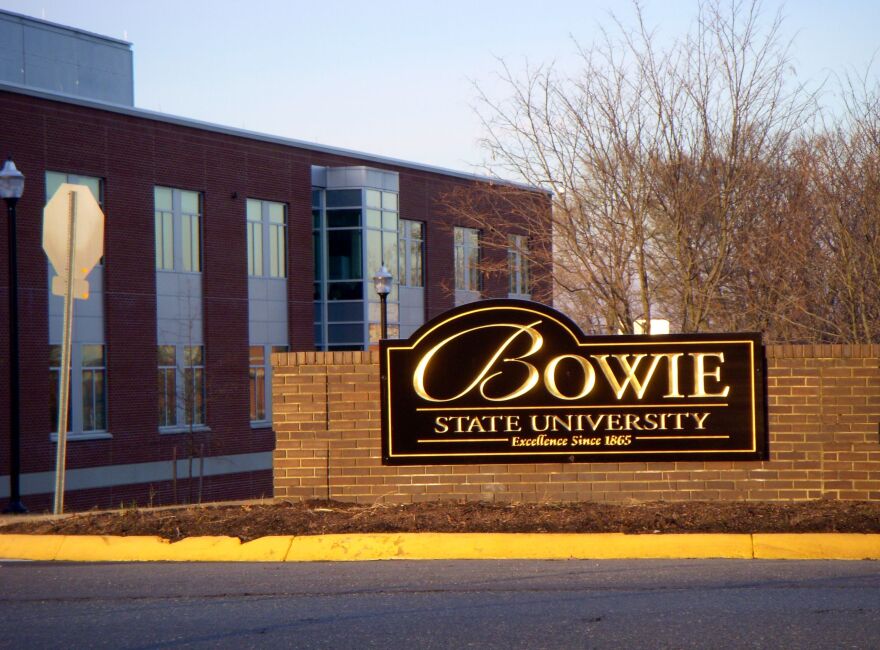Bowie State University will welcome 12 students – and maybe more – this fall as the inaugural class for the new public health and information technology combined undergraduate program.
The historically-Black university received a $10 million grant from the Department of Health and Human Services in September 2021 to create an education track that would boost the number of Black and minority students entering the information technology (IT) field.
Bowie State now offers five different pathways for students to engage with the dual program, known around campus as PHIT.
“In this area, this program is a trailblazer,” said PHIT director Birthale Archie. “There is no other program, to our knowledge, that combines public health and informatics and technology together.”
A study conducted by Education Dynamics and commissioned by Bowie State found that only 27% of IT professionals in the Baltimore area are Black, Archie said. PHIT can be the solution to that diversity deficit, she added.
Studying public health and IT in conjunction boosts students’ abilities to assess, diagnose and treat public health situations. This is important, Archie said, as there is plenty of data from the COVID-19 pandemic that still needs to be studied.
“It's just sitting there,” she said. “The more that we add to the workforce, the more that will be addressed.”
In 2022, 67 students engaged in the university’s four-week “boot camp” sessions. Charles Meregini, a senior biology major at Bowie State, was one of them.
Meregini was initially drawn to the PHIT program because of the resources offered. Students receive support to secure internships at healthcare agencies like MedStar and Blue Cross Blue Shield.
At the boot camp in July, Meregini learned how to analyze and organize data using software like Python. In August, he completed a capstone – one of the other PHIT pathways offered at Bowie State – where he had to decipher health data using technology and visuals.
“We had to make sure everything was clear so that a layman could relate to some of the data,” Meregini said.
After that experience, Meregini was hooked. He’s beginning an internship through the PHIT program at MedStar this fall. And he wants to earn the 18-course graduate certificate offered through PHIT later.
“I just found something really interesting that will keep me captivated for a long time,” he said. “It gave me purpose, actually.”
Meregini said the COVID-19 pandemic made it hard to ignore how important information and technology are to the public health sphere.
“During COVID-19, it was really hard for them to keep up with the data because of the growing population in the world,” he said. “The exchange of data between hospitals, being able to see what was going on in different areas…This field is needed in the world right now.”
Outside of the traditional undergraduate degree and master's certificate track, students who have associates degrees in computer science, nursing, or other related subjects will be able to participate in a two-year PHIT program.
Graduates in these related subjects can also pursue a capstone or internship through Bowie State, where they will receive help with compliance criteria and paperwork, Archie said.
“That's a rather challenging process,” she said. “With students, you have to really follow up because sometimes they don't understand or whatever to complete 100% of those expectations.”
Jacqueline Hill, director of Bowie State’s nursing department, is working with partner organizations to keep the PHIT program alive and funded after the grant expires in September 2025.
“Knowing the good that this program is going to provide for the underrepresented and the minorities who don't have a footing in [IT], I think it'll be tragic for us to stop this once the money ends,” she said.



